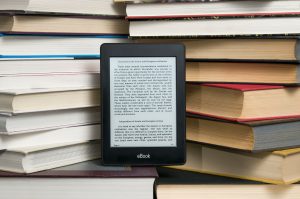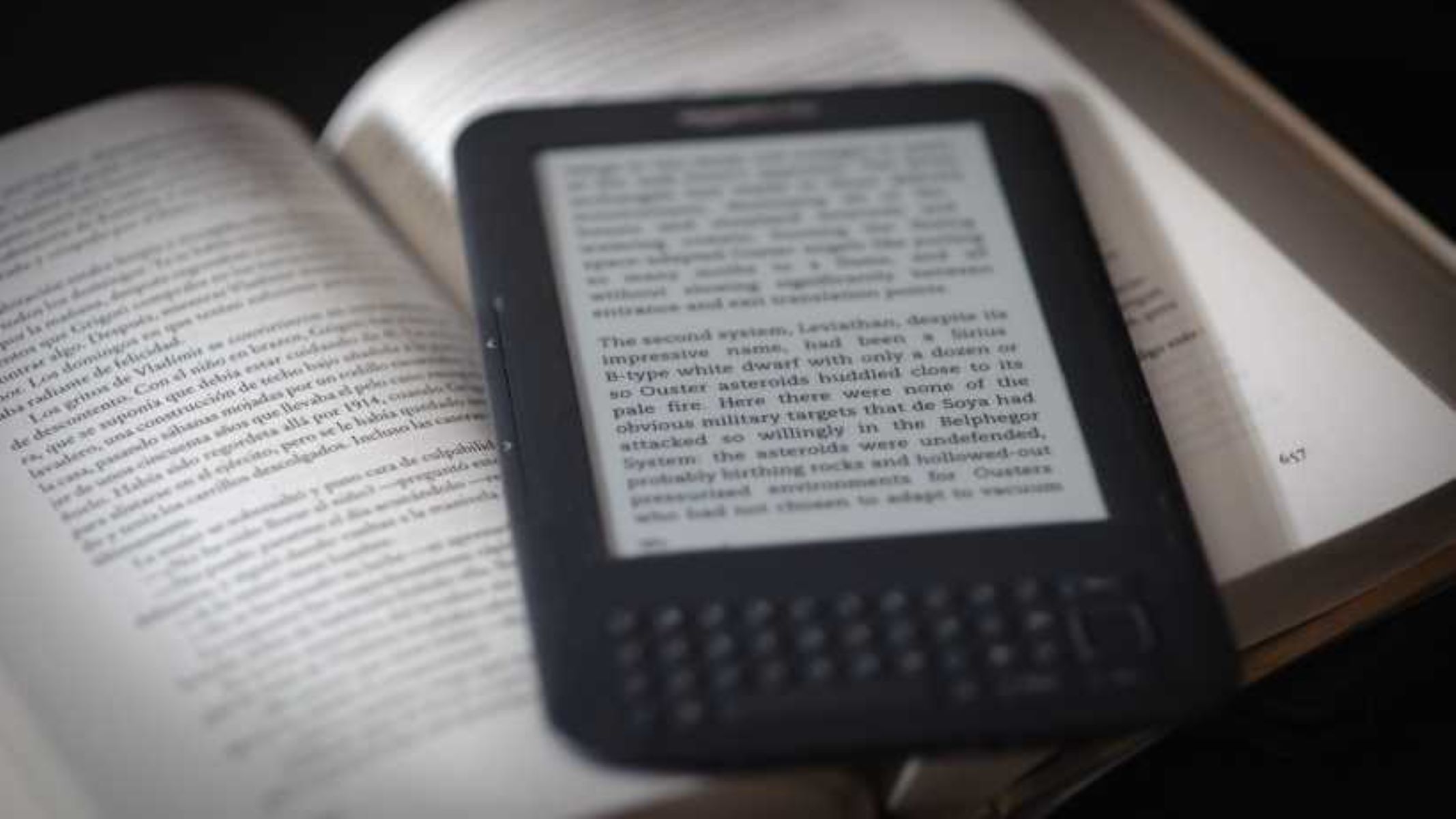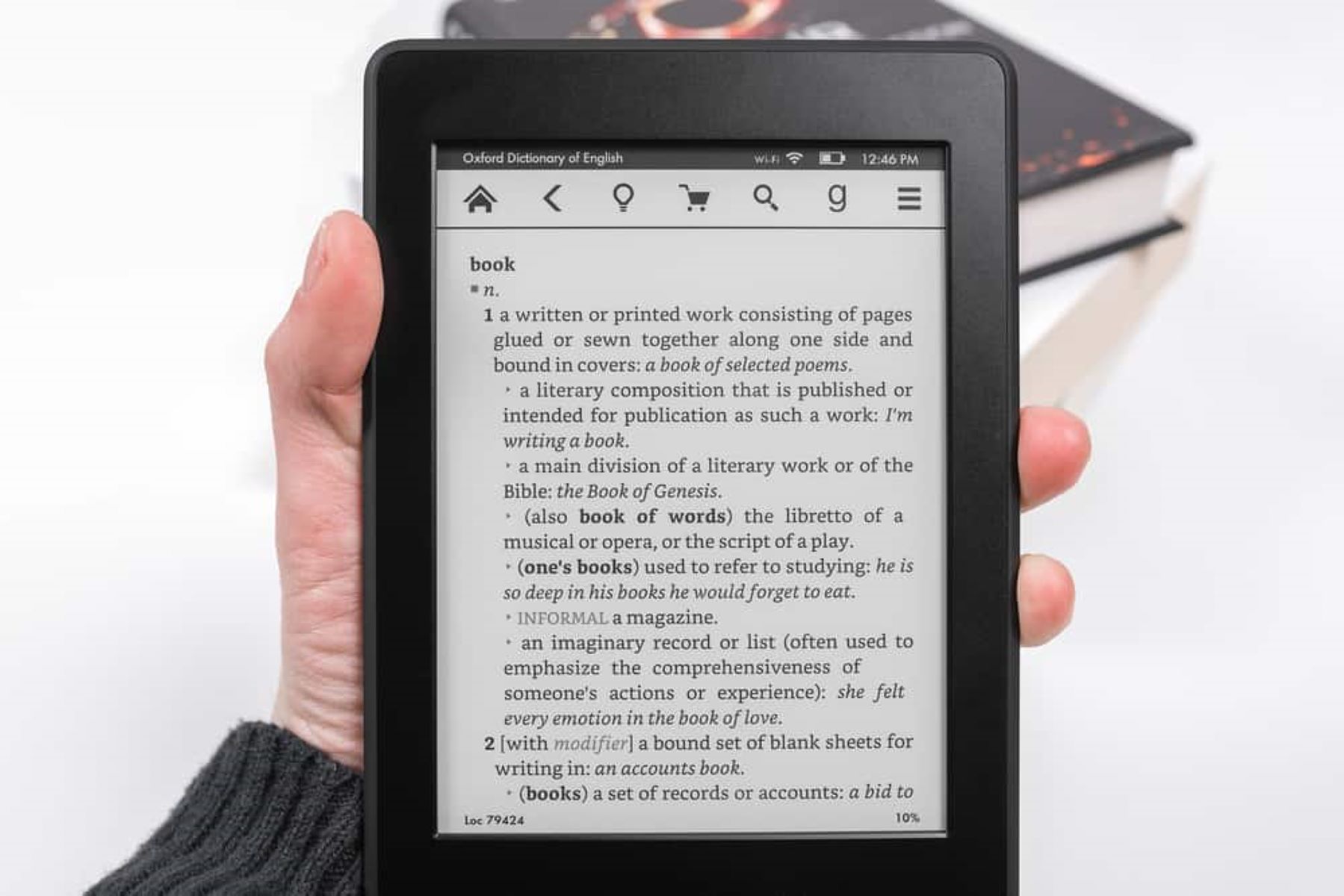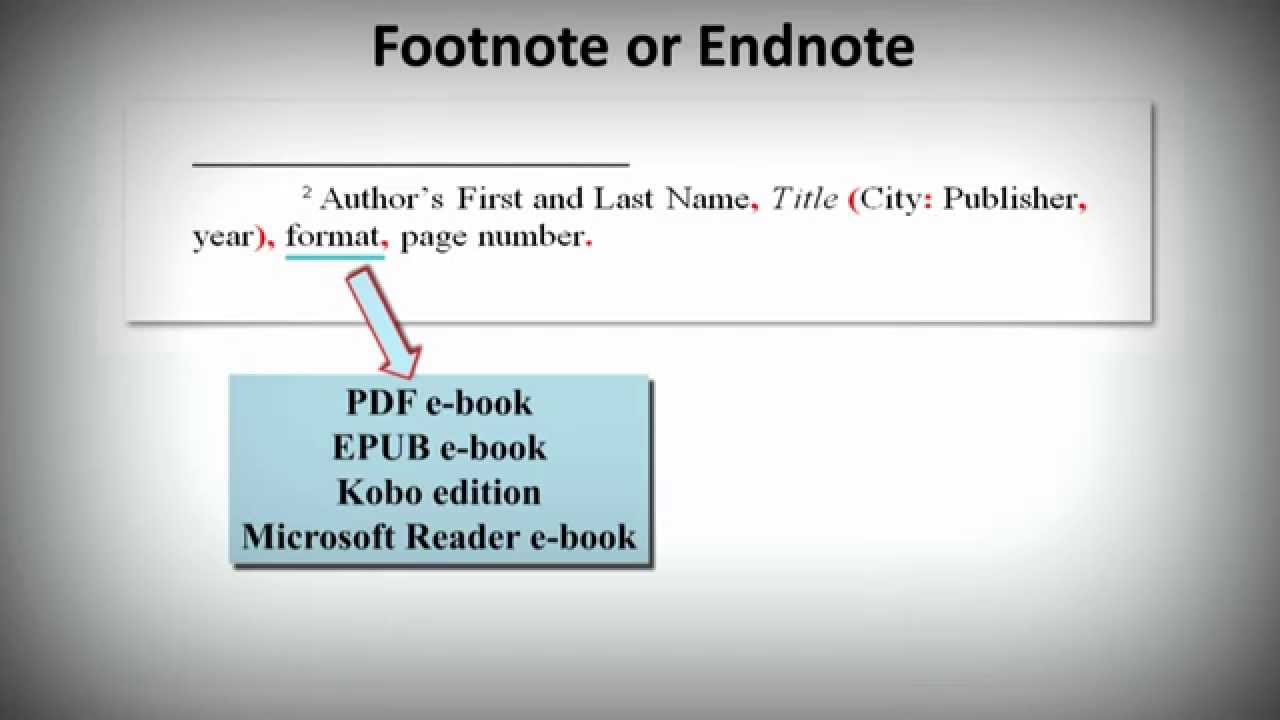Introduction
In today’s digital age, the debate between eBook and paper book continues to be a topic of discussion among avid readers. With the rise of e-readers and the convenience of digital reading, many people find themselves torn between embracing the modern era of eBooks or holding on to the traditional charm of paper books. Both formats have their own unique advantages and it ultimately boils down to personal preference and lifestyle choices.
eBooks have gained immense popularity over the past decade due to their numerous benefits. With an eBook, you can carry an entire library with you wherever you go, stored conveniently in a single device. The compact nature of eBooks allows readers to access a wide range of titles without the added burden of physical weight and space limitations. Additionally, eBooks are often more affordable and easily accessible, with downloading options available at any time and from anywhere in the world.
On the other hand, paper books offer a tangible and tactile reading experience that many readers greatly value. The scent of the pages, the feel of the paper, and the satisfaction of turning each page become cherished aspects of the reading journey. Paper books also provide a break from excessive screen time and offer a sense of escapism as readers can immerse themselves in the physicality of a traditional book.
While both formats have their merits, it is important to consider factors such as cost, accessibility, environmental impact, and personal preference when deciding between an eBook or a paper book. In this article, we will explore the benefits of both formats, compare their costs, examine their accessibility and convenience, discuss their environmental impact, and delve into the reading experience each format provides. By weighing these factors, readers can make an informed decision about which format best suits their needs and preferences.
Benefits of eBooks
eBooks offer numerous advantages that have contributed to their growing popularity among readers worldwide. Here are some key benefits of choosing eBooks:
- Portability: One of the biggest advantages of eBooks is their portability. With an eBook reader, such as a Kindle or a tablet, you can carry an entire library with you wherever you go. This eliminates the need to lug around multiple heavy books, making eBooks the ideal choice for travelers or people on the go.
- Space-saving: eBooks save physical space as they do not require bookshelves or storage areas. Whether you live in a small apartment or simply prefer a clutter-free environment, eBooks allow you to have a vast collection of books without sacrificing space.
- Instant access: With eBooks, you have instant access to your favorite titles with just a few clicks. Whether you’re in the mood for a classic novel or the latest bestseller, you can download and start reading within seconds, eliminating the need to wait for shipping or visit a physical bookstore.
- Adjustable font size and style: eBooks provide the convenience of adjusting the font size and style, making reading accessible to a wider audience. Whether you prefer larger fonts for easier reading or a specific font style for personal preference, eBooks allow you to customize your reading experience to suit your needs.
- Search and annotation features: eBook readers typically include search and annotation features, making it easy to search for specific keywords, phrases, or passages within a book. This can be particularly useful for academic or research purposes, as it allows for efficient information retrieval and note-taking.
- Interactive elements: Some eBooks include interactive elements such as multimedia, hyperlinks, and interactive quizzes, enhancing the reading experience and providing a more engaging and enriched learning experience, especially for educational and children’s books.
These benefits make eBooks an attractive choice for many readers, providing convenience, flexibility, and a wide range of options at your fingertips. However, it is important to consider the potential drawbacks and limitations of eBooks as well before making the decision to fully embrace digital reading.
Benefits of Paper Books
While eBooks offer convenience and portability, paper books have their own charm and unique advantages that continue to captivate readers. Let’s explore some of the benefits of choosing paper books:
- Tactile experience: The physicality of a paper book provides a sensory experience that many readers find enjoyable. The weight of the book in your hands, the feel of the pages as you turn them, and the satisfying sound of the paper create a unique connection between the reader and the text.
- Visual appeal: Paper books often showcase beautiful cover designs, intricate illustrations, and compelling typography that add to the visual appeal of the reading experience. The aesthetics of a well-designed book contribute to the overall enjoyment and can make the reading process more immersive.
- No screen time: In a world filled with digital screens, reading a paper book allows for a welcome break from excessive screen time. Turning off devices and immersing oneself in the pages of a physical book can provide a sense of relaxation and a much-needed respite from the digital world.
- Less distraction: Unlike eBooks, paper books do not come with notifications or other distractions that can interrupt the reading process. With a paper book, you can fully immerse yourself in the story without the constant temptation to check emails, messages, or social media updates.
- Collectability: Many book enthusiasts enjoy building physical book collections. Owning a personal library of paper books allows for a tangible display of literary interests and can be a source of pride and joy for book lovers. Displaying a well-curated bookshelf can also become a conversation starter and a reflection of personal taste.
- Sharing and lending: Paper books can be easily shared and lent to friends and family, fostering a sense of community and connection through the shared love of reading. Borrowing a cherished book from a loved one adds an extra layer of meaning and personal connection to the reading experience.
These advantages demonstrate the enduring appeal of traditional paper books, highlighting the sensory and emotional experience they offer. While digital reading options continue to evolve, paper books hold a special place in the hearts of readers who appreciate the tangible beauty and connection they provide.
Comparison of Cost
When considering whether to choose eBooks or paper books, cost is an important factor to take into account. Let’s compare the costs of these two formats:
eBooks: Generally, eBooks tend to be more affordable than their physical counterparts. Many eBooks are priced lower than the printed versions, especially when it comes to newer releases or bestsellers. Additionally, eBooks often have discounted offers, promotions, and freebies available from online retailers. With the ability to access a wide range of eBooks at lower prices, digital reading can be a cost-effective option for avid readers.
Paper books: While paper books may be pricier than eBooks in some cases, they offer the advantage of being a one-time purchase. Once you buy a paper book, you own it indefinitely without any restrictions. Furthermore, physical books can be resold or passed on to others, allowing readers to recoup some of the initial investment. Used bookstores, library sales, and online platforms for buying and selling used books also provide opportunities to save money on paper books.
It is important to note that factors such as publishing format (hardcover or paperback), rarity, and demand can affect the price of paper books. Additionally, collectors and enthusiasts may be willing to pay a premium for special editions or autographed copies of books. However, for those who are on a budget or prefer to spend less on reading material, eBooks often provide a more affordable option.
Ultimately, the cost comparison between eBooks and paper books will depend on individual reading habits, preferences, and financial circumstances. It is worth considering how much you typically spend on books, whether you prefer to own physical copies or have a digital library, and how often you plan to purchase new titles.
By carefully evaluating your reading needs and budget, you can make an informed decision regarding which format is more cost-effective for you.
Accessibility and Convenience
Accessibility and convenience play a significant role in the decision between eBooks and paper books. Let’s examine how these factors differ between the two formats:
eBooks: Digital reading offers unparalleled accessibility and convenience. With an eBook reader or a smartphone/tablet, you can carry an entire library with you wherever you go. Whether you are traveling, commuting, or simply want to have multiple reading options at your fingertips, eBooks provide the convenience of instant access to a wide range of titles. Additionally, eBooks can be downloaded and read immediately, eliminating the need to wait for shipping or physically visit a bookstore. Accessibility is also enhanced for those with visual impairments, as many eBook readers offer adjustable font sizes, background colors, and other accessibility features.
Paper books: Although paper books may not offer the same level of portability as eBooks, they have their own unique conveniences and accessibility advantages. Physical books do not require any digital devices or batteries, making them instantly accessible without any technology-related hiccups. Moreover, unlike eBooks that might require internet connectivity or device compatibility, paper books can be read anywhere without the need for additional equipment or a power source. They are readily available in libraries, bookstores, and secondhand markets, and can be borrowed, traded, and gifted without any restrictions.
While eBooks may be more convenient in terms of carrying a library in your pocket and accessing books instantly, paper books exude a charm that cannot be replicated by digital reading. The act of browsing through physical shelves in a bookstore, feeling the weight of a book in your hands, and turning physical pages can provide a different level of satisfaction and connection to the text. Additionally, those who appreciate the aesthetics of book covers and the tangible presence of a physical library may find paper books more fulfilling.
Ultimately, the choice between eBooks and paper books in terms of accessibility and convenience will depend on individual preferences and lifestyle. Digital reading offers a lightweight and easily accessible library, while physical books provide a tangible and nostalgic experience that some readers find irreplaceable.
Environmental Impact
When considering the environmental impact of eBooks versus paper books, several factors come into play. Let’s explore the environmental implications of each format:
eBooks: eBooks are often hailed as a more environmentally friendly option compared to paper books. They eliminate the need for paper production, which involves cutting down trees and consuming large amounts of water and energy. By opting for digital reading, you can reduce deforestation, conserve natural resources, and minimize carbon emissions associated with the printing, transportation, and disposal of physical books. Additionally, eBooks do not contribute to the accumulation of physical waste in landfills, as they are stored electronically. However, it’s worth noting that the production and disposal of electronic devices, such as e-readers and tablets, have their own environmental implications, including mining of raw materials and electronic waste management.
Paper books: While paper book production has an initial impact on the environment, it’s important to consider the sustainability efforts made by the publishing industry. Many publishers now prioritize sourcing paper from responsibly managed forests or using recycled paper, reducing the ecological footprint associated with paper book production. In addition, the longevity and reusability of paper books contribute to their environmental benefits. A well-cared-for paper book can be passed on or resold multiple times, extending its life cycle and reducing overall resource consumption compared to single-use electronic devices. However, it’s important to ensure that books are recycled properly at the end of their life to limit waste.
In the context of environmental impact, the decision between eBooks and paper books may not have a definitive winner. It ultimately depends on factors such as the consumption habits of digital devices, the sourcing of materials, and the responsible disposal and recycling practices for both eBooks and paper books. Opting for eBooks can reduce paper consumption and carbon emissions, but it’s important to be conscious of the environmental impact of electronic devices, their energy consumption, and responsible e-waste disposal. On the other hand, choosing responsibly sourced paper books and participating in book recycling initiatives can contribute to a more sustainable reading experience.
As the publishing industry continues to evolve and embrace sustainable practices, readers can contribute to minimizing their environmental impact by supporting publishers committed to eco-friendly initiatives and making informed choices about their reading materials.
Book Reading Experience
The book reading experience is a crucial aspect that can greatly influence our enjoyment and connection with the story. Let’s explore how the reading experience differs between eBooks and paper books:
eBooks: eBooks offer a variety of features that enhance the reading experience. Adjustable font sizes, font styles, and background colors provide customization options to suit individual preferences and improve readability. Built-in dictionaries and instant access to online references allow for quick word definitions and deeper exploration of concepts. The ability to highlight sections, make notes, and bookmark pages digitally simplifies the process of capturing and revisiting important passages. Additionally, some eBooks offer interactive features such as multimedia content, hyperlinks, and search capabilities, which can enhance the learning experience in educational or interactive books.
Paper books: The tactile nature of paper books adds a sensory dimension to the reading experience. The weight and feel of the book, the texture of the pages, and the act of physically turning each page contribute to the enjoyment and engagement with the text. Paper books often offer beautiful cover designs, artwork, and illustrations that can further immerse readers in the story. The absence of digital distractions, such as notifications or screens, allows for a more focused reading environment, enabling readers to fully immerse themselves in the narrative. Furthermore, the display of a physical book collection and the ability to easily flip back and forth between pages provide a unique experience that some readers find irreplaceable.
Choosing between eBooks and paper books largely comes down to personal preference and the reading experience one desires. Some readers enjoy the convenience and interactive features of eBooks, while others revel in the sensory and nostalgic experience of reading a physical book. It’s worth noting that factors like eye strain, screen fatigue, and distractions can also affect the reading experience with eBooks, whereas paper books offer a respite from excessive screen time.
Ultimately, both formats have their own charm and unique qualities that contribute to the reading experience. Some readers may prefer the convenience and functionality of eBooks, while others appreciate the traditional and tangible aspects of paper books. Whichever format you choose, the joy of reading and the connection with the story remain at the heart of the experience.
Conclusion
The decision of whether to choose eBooks or paper books ultimately boils down to personal preference, lifestyle, and individual reading habits. Both formats offer unique advantages and considerations. eBooks provide convenience, portability, adjustable font sizes, and instant access to a vast library, while paper books offer a tangible reading experience, visual appeal, and a break from excessive screen time.
When making this decision, factors such as cost, accessibility, environmental impact, and the overall book reading experience should be taken into account. eBooks are often more affordable and easily accessible, but they do contribute to the production and disposal of electronic devices. Paper books, on the other hand, may require initial resources for production but offer the possibility of reuse, sharing, and collecting. They also provide the sensory experience that many readers cherish.
It’s important to consider your own reading preferences and lifestyle. Are you constantly on the go and in need of a portable library? Are you concerned about the environmental impact and prefer a digital reading experience? Do you value the tactile connection with a physical book? Considering these questions will help guide you towards the format that aligns best with your needs and values.
Ultimately, there is no right or wrong choice between eBooks and paper books. The beauty of reading lies in the power of storytelling, regardless of the medium. Whether you find solace in the crisp pages of a newly printed book or embrace the convenience of an e-reader, what truly matters is the joy and enrichment that reading brings to your life.
So, embrace your preferred format, immerse yourself in captivating stories, and keep the love of reading alive!

























